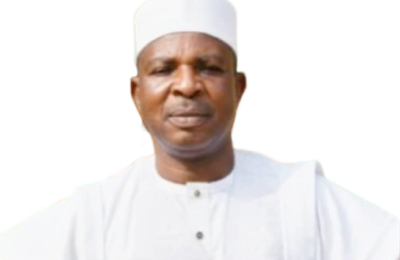Power is sweet, but its desperation often leaves a bitter taste in the mouths of the people. The unfolding drama in Kogi Central, where some political actors seek to recall Senator Natasha Akpoti-Uduaghan, is not new under the Nigerian sun. It is a script we have seen before—one that reeks of political maneuvering, vendettas, and the endless quest to silence dissenting voices.
History does not just repeat itself; in Nigeria, it often returns with a more dramatic twist. Senator Dino Melaye’s 2017 recall attempt remains a textbook example of how political elites manufacture chaos to achieve their selfish ends. Over 188,000 signatures were gathered, but when INEC conducted verification, the whole house of cards collapsed—less than 5% of the signatures were valid. Does this sound familiar? The Natasha saga mirrors this political jamboree. The so-called 208,132 signatures validated by INEC (a mere 43.86% of total votes) raise fundamental questions. Were these signatures freely given, or was this another case of coercion, deception, and desperation? If Melaye’s recall attempt crumbled under legal scrutiny, what makes Natasha’s case any different?
Political recalls are not exclusive to Nigeria. In 2021, California Governor Gavin Newsom faced a recall attempt, largely fueled by opposition to his COVID-19 policies. The petition garnered enough signatures to trigger a recall election, yet when voters had their say, Newsom won by a landslide. The lesson is simple: orchestrated political attacks do not always reflect the true will of the people. The question then arises—are the people of Kogi Central truly behind this recall, or is this another case of a loud minority hijacking the narrative? If a free and fair election put Akpoti-Uduaghan in office, should her fate not be determined at the ballot box rather than through a politically motivated recall?
INEC’s nullification of over 35,000 signatures suggests a flawed process. Who gathered these signatures? Under what conditions? History has shown that desperate politicians will go to great lengths to manufacture consent where none exists. The recall petitioners accuse Akpoti-Uduaghan of being “divisive.” But in Nigerian politics, when a strong-willed leader challenges the status quo, they are often labeled “troublesome.” The real question is—who benefits from her removal? Melaye’s recall attempt failed partly because people simply refused to participate. The same fate may await this recall if Natasha’s supporters choose to boycott. What happens when the so-called “people’s will” is tested in an actual referendum?
Despite the rejection of this recall attempt by INEC, there is now a renewed vow by some forces to still go ahead and recall Natasha Akpoti-Uduaghan at all costs. If an electoral body has already dismissed this effort based on irregularities, what moral ground remains to insist on continuing? The desperation is deafening, and the intent is as clear as day—it is not about service to the people but about political dominance and personal vendettas.
Democracy thrives on the mandate of the people, not the desperation of politicians. If Natasha Akpoti-Uduaghan has lost the support of Kogi Central, let the people decide at the next election. Weaponizing recalls to settle political scores sets a dangerous precedent—one that will ultimately haunt even those championing it today. After all, power belongs to the people, but the people must be allowed to speak for themselves.
– Inah Boniface Ocholi writes from Ayah – Igalamela/Odolu LGA, Kogi state.
08152094428 (SMS Only)




